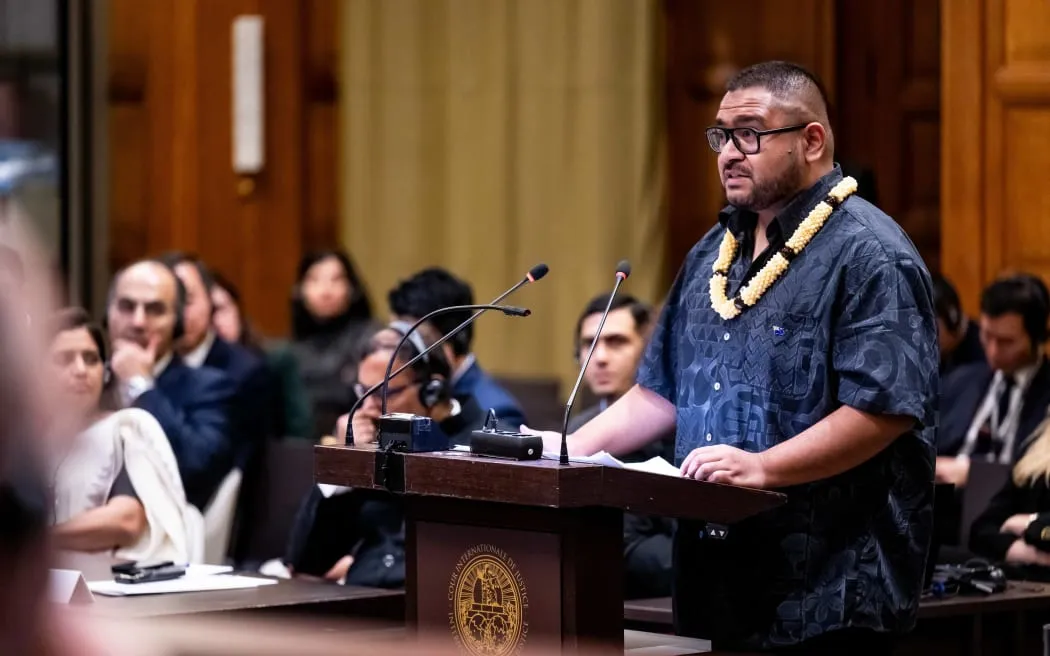The Cook Islands Takes a Stand at the International Court of Justice
The Cook Islands has made history by becoming the first Pacific nation to appear before the International Court of Justice (ICJ), using its platform to advocate for decolonisation of international law and address the root causes of climate change.
During an oral statement for an advisory opinion on the obligations of states regarding climate change, Auckland University senior lecturer Fuimaono Dylan Asafo placed the blame squarely on “our international legal system” for the climate crisis we face today. Major greenhouse gas emitters have relied on these systems, and the institutions and fora they contain, like the annual COPs (Conference of Parties), for many decades to expand fossil fuel industries, increase their emissions, and evade responsibility for the significant harms their emissions have caused.
The Root Causes of Climate Change
Fuimaono’s statement highlighted the role of imperialism, colonialism, racial capitalism, heteropatriarchy, and ableism in perpetuating the climate crisis. He argued that these systems of domination have enabled major greenhouse gas emitters to maintain their power and evade accountability for the devastating impacts of their emissions.
“In doing so, they have been able to maintain and grow the broader systems of domination that drive the climate crisis today,” Fuimaono said. “We must dismantle these systems and imagine and build new ones capable of allowing everyone to live lives of joy and dignity, so that they are able to determine their own futures and destinies.”
The Cook Islands’ Call for Reparations
Fuimaono also called on nations to provide reparations to climate-vulnerable countries if they fail to meet their adaptation and mitigation obligations. He argued that the adverse effects of climate change, such as displacement, migration, and relocation, are a direct result of these failures.
“We believe states should owe reparations to climate-vulnerable countries,” Fuimaono said. “The Cook Islands is committed to working with other nations to ensure that those who have contributed most to the problem take responsibility for their actions.”
A New Era for International Law
The Cook Islands’ appearance before the ICJ offers a significant opportunity to reinterpret and advise on existing international law in its best possible light. Fuimaono saw this as a chance to empower all states and peoples to work together to decolonise international law and build a more equitable and just world.
“This is the most precious opportunity for us to do so,” Fuimaono said. “We must seize this moment to create a new future, one that values justice, equality, and human rights.”
A New Era of Cooperation
The Cook Islands’ participation in the ICJ proceedings has sparked widespread interest and cooperation among nations. The island’s delegation was led by its Foreign Affairs and Immigration director, Sandrina Thondoo, and foreign service officer Peka Fisher.
Over 100 states and international organisations participated in the written and oral proceedings, making this the largest number of participants ever for an ICJ proceeding.
A Conclusion
The Cook Islands’ bold move at the International Court of Justice marks a significant turning point in the global fight against climate change. By advocating for decolonisation of international law and calling for reparations, Fuimaono has ignited a conversation about the need for justice, accountability, and cooperation.
The Cook Islands’ efforts serve as a powerful reminder that we can do better – that we must do better – to protect our planet and ensure a just future for all.

0 Comments